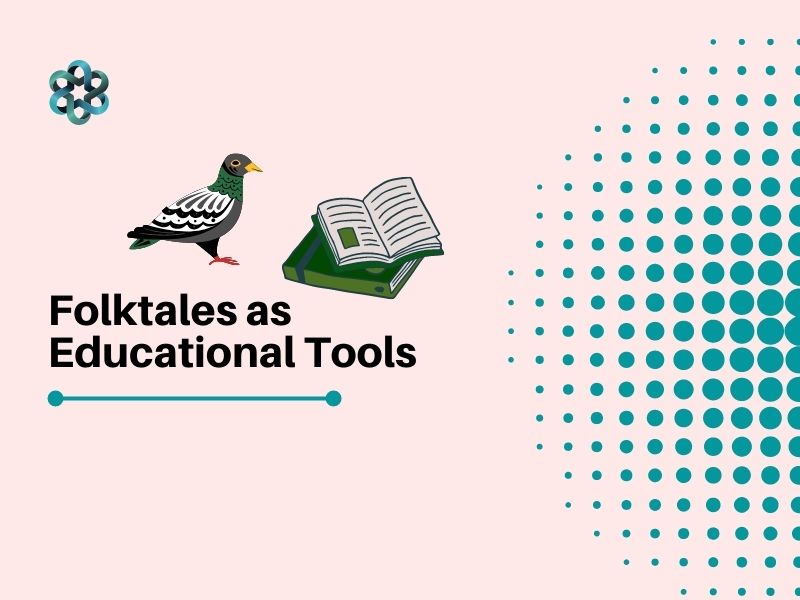Folktales hold a special place in the hearts of people worldwide, transcending time and cultural boundaries. Their captivating narratives and profound wisdom have not only entertained but also served as powerful educational tools. This research-oriented article embarks on a journey to explore the far-reaching impact of folktales as educational resources. Delving into the enchanting world of storytelling, we will uncover the ways in which folktales foster language learning, stimulate cognitive growth, and promote critical thinking. As we navigate through the rich tapestry of folktales, we will discover the invaluable contributions these age-old stories make in shaping the minds of children and learners of all ages. Join us in this exploration of the transformative power of folktales, where timeless wisdom meets the boundless potential of education.
The Language-Learning Potential of Folktales
Folktales hold immense potential as linguistic treasures, providing a wealth of vocabulary, idiomatic expressions, and cultural references that aid in language learning. When children listen to or read these captivating stories, they are exposed to diverse linguistic patterns and nuanced language usage, enhancing their verbal abilities. This exposure to varied language structures enables young learners to grasp language nuances, improve pronunciation, and expand their communication skills. Folktales serve as engaging tools that nurture language development in an enjoyable and enriching manner, making them an invaluable resource for young language learners.
Fostering Reading Comprehension
Engaging with folktales fosters active reading habits among learners as they immerse themselves in captivating narratives to comprehend the plot, characters, and context. This practice enhances reading fluency, comprehension, and interpretation skills, which are essential for effective language learning. By delving into folktales, learners develop the ability to extract meaning from text, identify story elements, and make connections between events and characters. The process of reading and comprehending folktales not only improves language proficiency but also nurtures a love for reading, making it a valuable tool for fostering reading comprehension skills.
Cultural Understanding through Folktales
Folktales serve as windows into the rich tapestry of different cultures, customs, and traditions, offering learners a deeper understanding of the cultural nuances of various societies. As learners explore folktales from different regions, they develop cultural empathy and global awareness, which are essential for effective communication and cross-cultural understanding. Through these captivating narratives, learners gain insights into the values, beliefs, and ways of life of diverse communities, fostering a sense of appreciation and respect for cultural diversity. By embracing folktales as vehicles of cultural understanding, learners open their minds to the vast and interconnected world of human experiences.
Enhancing Cognitive Skills
The imaginative and creative nature of folktales stimulates cognitive development in learners of all ages. As individuals engage with the characters and plots, they exercise critical thinking, problem-solving, and analytical skills. Folktales present characters facing moral dilemmas or complex situations, encouraging learners to explore alternative solutions and consider the consequences of their actions.
Cultivating Emotional Intelligence
In the world of folktales, characters experience a diverse array of emotions, from joy and bravery to fear and sadness. As learners immerse themselves in these captivating narratives, they form emotional connections with the characters, gaining valuable insights into human emotions and behaviour. This emotional engagement fosters emotional intelligence, enabling learners to recognize and understand their own emotions and those of others. By empathizing with the struggles and triumphs of the characters, learners develop a deeper sense of empathy and compassion, essential components of emotional intelligence. Folktales serve as powerful tools in cultivating emotional intelligence, nurturing learners’ abilities to navigate their emotions and build meaningful connections with others.
Sparking Creativity and Imagination
Folktales have a magical ability to transport learners to enchanting worlds filled with mythical creatures, magical objects, and extraordinary settings. As individuals immerse themselves in these captivating narratives, their imagination and creativity are ignited, inviting them to explore alternative perspectives and envision new possibilities. The vivid imagery and fantastical elements in folktales inspire learners to craft their own stories, characters, and adventures. This spark of creativity encourages learners to think outside the box, nurturing their ability to innovate, problem-solve, and see the world from a fresh and imaginative lens. Folktales serve as powerful catalysts for sparking creativity and nurturing the boundless potential of learners’ imaginations.
Folktales in Multilingual Education
Folktales play a vital role in multilingual educational settings, contributing significantly to language development. These captivating stories are often adapted into different languages, enabling learners to experience the same tale in various linguistic contexts. This exposure not only enhances language proficiency but also fosters an appreciation for linguistic diversity. Learners not only develop linguistic skills but also gain a deeper understanding of the cultural nuances and subtleties embedded in different languages. By embracing folktales in multilingual education, learners embark on a fascinating journey of language exploration and cultural appreciation, celebrating the richness of linguistic diversity in an interconnected world.
Integrating Technology and Folktales
In the digital age, technology has opened up exciting possibilities for engaging with folktales in innovative ways. Educators can leverage interactive e-books, audio recordings, and online resources to create immersive learning experiences that bring folktales to life. These digital platforms enable learners to explore folktales through interactive visuals, audio narration, and interactive elements, enhancing language learning and cognitive skills. By integrating technology and folktales, educators provide learners with dynamic and engaging ways to immerse themselves in captivating narratives, fostering a deeper appreciation for the richness of storytelling and its impact on learning.
Conclusion
Folktales stand as invaluable resources in the realm of education, providing a treasure trove of linguistic, cognitive, and cultural benefits for learners of all ages. As educational tools, these age-old stories captivate learners’ imaginations while enhancing their language skills, critical thinking, and emotional intelligence. By embracing folktales as powerful agents of education, we celebrate the enduring magic of storytelling, enriching the learning journey of generations to come. As we continue to explore the limitless potential of folktales, we unlock a world of wisdom that transcends time and connects us to the essence of humanity.

